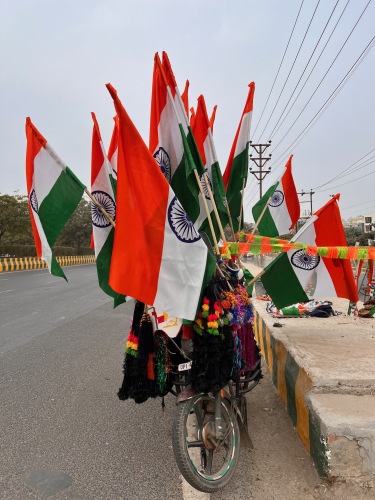
BJP President JP Nadda launched a nationwide outreach campaign on Thursday, 10 April with a workshop at party headquarters, amid growing controversy over a now-deleted RSS article that had discussed Christian properties.
The workshop, titled ‘Waqf Sudhar Janjagaran Abhiyan’ (Drive to enlighten people about waqf reforms), saw Nadda and Minority Affairs Minister Kiren Rijiju brief party minority morcha heads on implementing a coordinated response to the new Waqf law.
Rijiju emphasized that the legislation would ensure transparency, accountability and socio-economic justice, according to media reports.
The BJP’s campaign follows widespread protests against the Waqf Act and controversy over an article in RSS mouthpiece ‘Organiser’ on April 3. The now-deleted piece claimed Catholic institutions owned approximately 7 crore hectares of land across India, making them “the largest non-governmental landowner” in the country with property valued at around Rs 20,000 crore.
The article’s publication, which coincided with parliamentary debates on the Waqf Bill, and its subsequent removal on April 6, was seized upon by opposition leaders. Leader of Opposition Rahul Gandhi wrote on X: “I had said that the Waqf Bill attacks Muslims now but sets a precedent to target other communities in the future. It didn’t take long for the RSS to turn its attention to Christians.”
Prime Minister Narendra Modi, who did not speak on the bill during parliamentary debates, is expected to express his views on the Waqf Act at a programme in Haryana on April 16.
The BJP has organized a structured rollout for its campaign, with state-level workshops scheduled for April 15-17, followed by district-level workshops on April 19. The formal drive will run from April 20 until May 5.
Party officials have assigned specific regions to senior leaders, with National Secretary Arvind Menon coordinating efforts in southern states and Anil Antony overseeing the Northeast, Bihar, and West Bengal. RMD Agarwal will manage outreach in Uttar Pradesh and northern states, whilst Jamal Siddique, head of the BJP Minority Morcha, takes charge of Jammu and Kashmir.
According to media reports, the party will hold ‘Isai Sadhbaav’ (Christian Goodwill) meetings in areas with significant Christian populations, particularly in the Northeast and South India, to address concerns raised by opposition parties.
The campaign includes door-to-door meetings in Muslim households, youth group discussions, and targeted outreach to women across Muslim communities. Party workers have been instructed to utilise social media extensively, sharing memes and gathering public opinions to amplify their message.
NDA partners are reportedly concerned about the Act’s potential impact on their voter base, particularly in Bihar, where elections are scheduled for October-November.
The Waqf (Amendment) Act, which received presidential assent on April 5, allows non-Muslims to be appointed to the Central Waqf Council and Waqf Board. The Act governs properties worth an estimated Rs 1.2 lakh crore according to the 2006 Sachar Committee report, which noted these assets should generate annual revenue of Rs 12,000 crore.
Kerala Chief Minister Pinarayi Vijayan said in a post on social media: “The article in the RSS mouthpiece @eOrganiser about the Church’s ownership of land, published soon after the Waqf Amendment Act was passed, lays bare the Sangh Parivar’s deep-rooted antagonism towards minorities. Though later withdrawn, it reveals a deliberate, step-by-step attempt to target and isolate minorities and their institutions.”
Shiv Sena (UBT) chief Uddhav Thackeray stated: “After bringing the Waqf law, the BJP is going to eye the land of Christians, Jains, Buddhists and even Hindu temples. They will give prime land to their friends. They have no love for any community,” adding, “It is time people wake up now and open their eyes as the BJP has made it quite clear in the public about their intentions in the coming days.”




